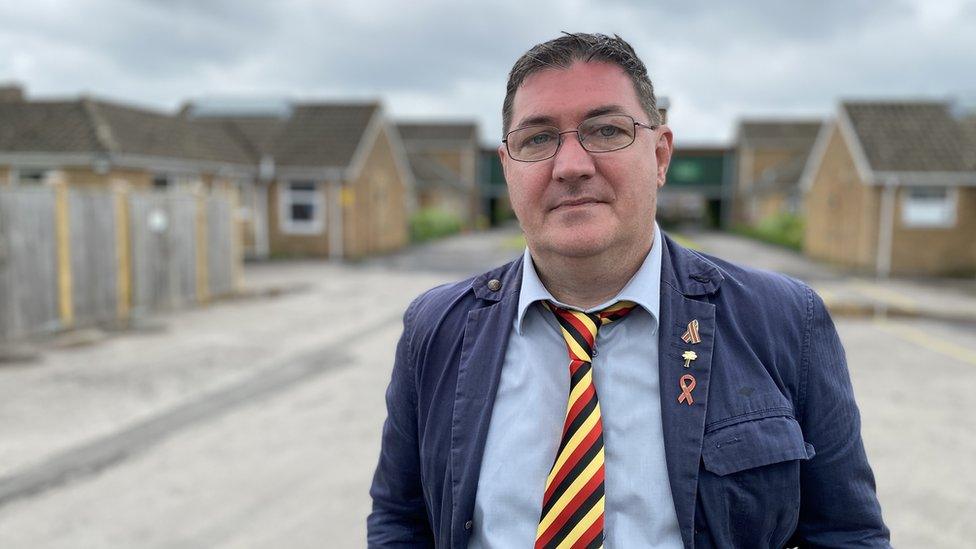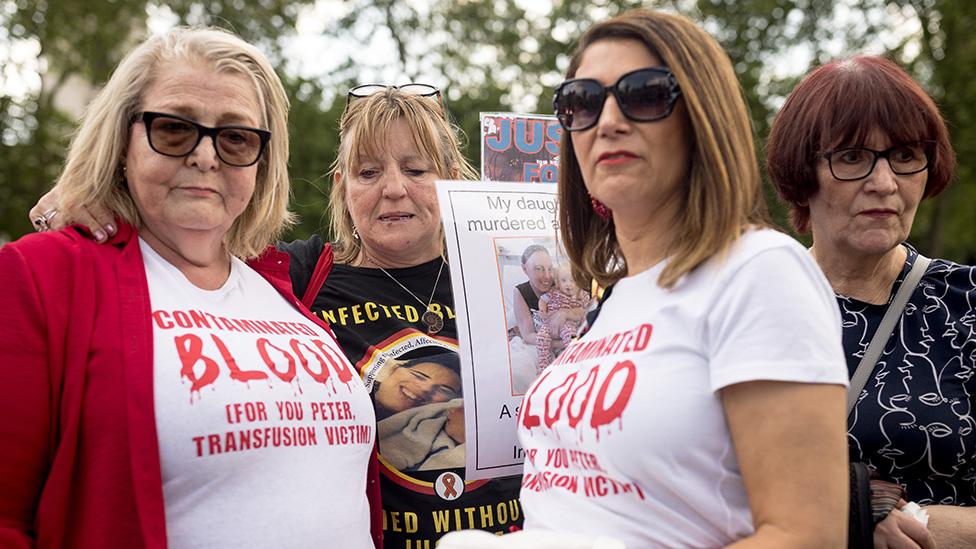Sir John Major calls contaminated blood scandal 'incredibly bad luck'
- Published

Former prime minister Sir John Major has described the contaminated blood scandal as "incredibly bad luck", drawing gasps from families watching him give evidence under oath to the public inquiry into the disaster.
Up to 30,000 people contracted HIV and hepatitis C in the 1970s and 80s after being given blood treatments or transfusions on the NHS.
Thousands have since died.
Sir John later apologised for his choice of language.
He said: "I obviously caused offence inadvertently this morning when I referred to the fact that it was awful that people had been fed infected blood and I referred to it as sheer bad luck.
"I can only say to people it wasn't intended to be offensive. I was seeking to express the fact that I was concerned about what happened.
"It was intended simply to say that it was a random matter and I perhaps expressed it injudiciously."
He appeared before the inquiry to answer questions about the government's actions, including decisions on financial assistance for those affected by the contaminated blood incident.
The public inquiry into the scandal, chaired by former judge Sir Brian Langstaff, started taking evidence in April 2019 with hearings in Belfast, Leeds, Cardiff, Edinburgh and London. It is expected to publish its final report in mid-2023.
Questions have been asked about what the government knew about the risks of the blood treatments, and whether patients were given sufficient warning.
'Worst treatment disaster'
It has been called the biggest treatment disaster in NHS history and was the result of a new treatment intended to make lives better.
Factor VIII was a therapy designed to help blood clot. It was imported from the United States where it was distilled from the pooled blood of thousands of individuals, including prisoners, who were often paid to donate.
People with haemophilia, including many young children, were infected, along with others who were given blood transfusions after surgery.
Dame Anita Roddick, the founder of the Body Shop chain and human rights activist, contracted hepatitis C in 1971 after being given blood during childbirth. She died in 2007 of a brain haemorrhage linked to the disease.
Campaigners say those infected decades ago are now dying at the rate of one every four days as a result.
The UK-wide inquiry was launched after years of campaigning by victims, who claim the risks were never explained and that the scandal was covered up.
Sir John Major did not hold a position in government in the 1970s or early 1980s when most of those infected were treated with contaminated blood products.
But he did hold senior positions, including as Chancellor and PM, when financial support for the families affected were being discussed in the late 80s and early 90s.
Des Collins from Collins Solicitors, which represents some of the people affected by the contaminated blood scandal, said: "Apart from his 'bad luck' gaffe, Sir John was actually not without sympathy for victims this morning. Yet his evidence was as measured as you would expect."
Related topics
- Published21 June 2021

- Published27 July 2021

